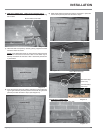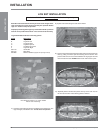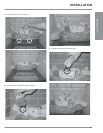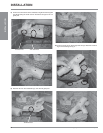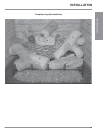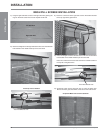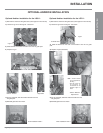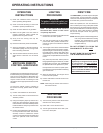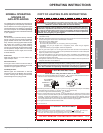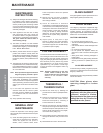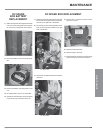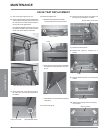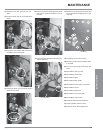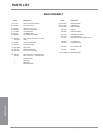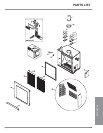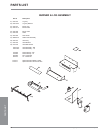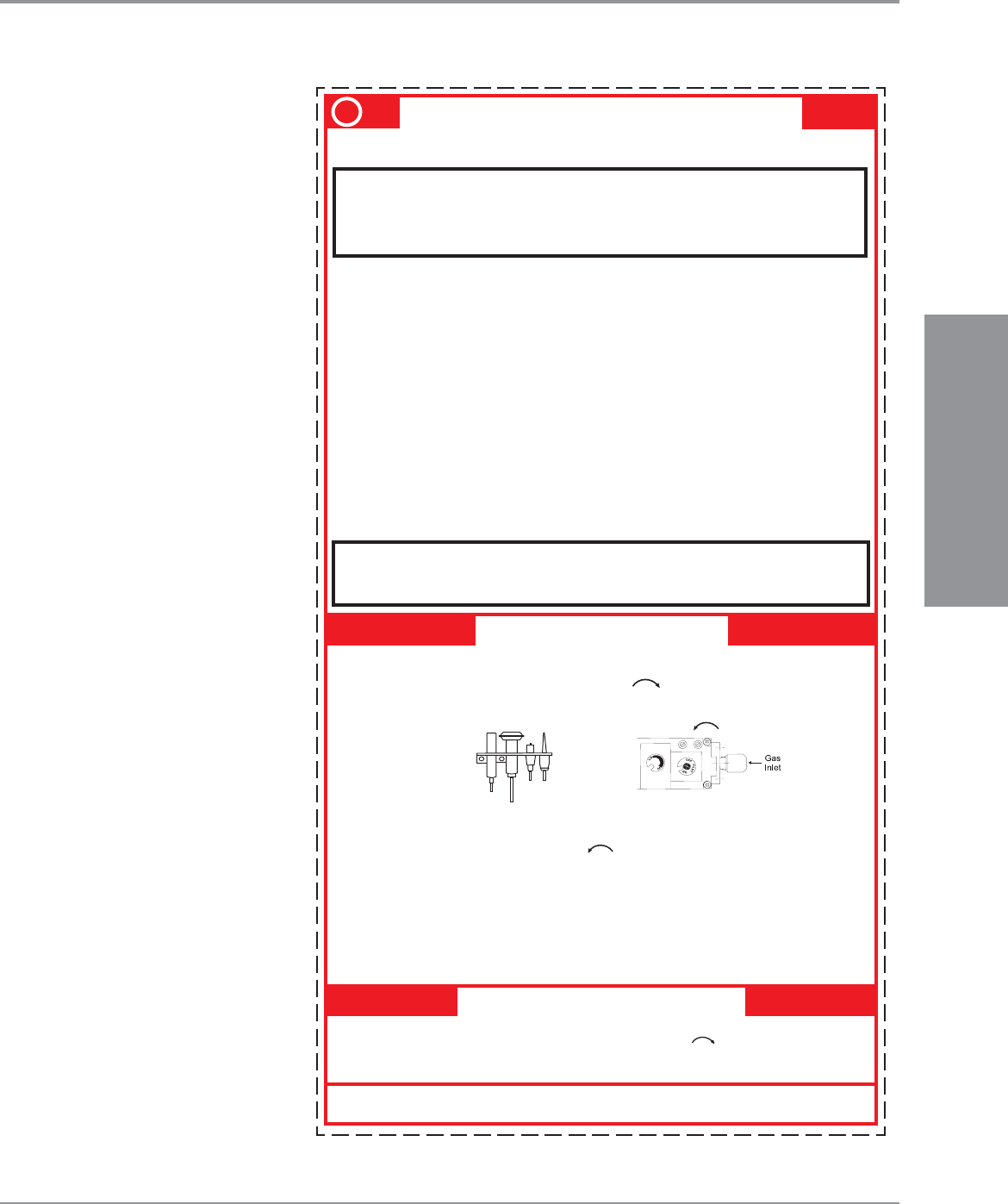
Regency
®
L676-1 Direct Vent Gas Fireplace 39
OPERATION
OPERATING INSTRUCTIONS
COPY OF LIGHTING PLATE INSTRUCTIONS
TO TURN OFF GAS APPLIANCE
FOR YOUR SAFETY READ BEFORE LIGHTING
LIGHTING INSTRUCTIONS
1) Push in gas control knob slightly and turn clockwise to “OFF”. Knob cannot be turned from
“PILOT” to “OFF” unless knob is pushed in slightly. Do not force.
2) Wait fi ve (5) minutes to clear out any gas. If you then smell gas STOP! Follow step “B” in the Safety
Information above on this label. If you don’t smell gas, go to the next step.
3) Turn knob on gas control counterclockwise to“PILOT”.
4) Push in control knob all the way and hold in until the pilot lights up. Continue to hold the control
knob in for about 20 seconds after the pilot is lit. Release knob and it will pop back up. Pilot should
remain lit. If it goes out, repeat steps 1) to 4). If knob does not pop up when released, stop and
immediately call your service technician or gas supplier. If the pilot will not stay lit after several tries,
turn the gas control knob to “OFF” and call your service technician or gas supplier.
5) Turn gas control knob counterclock-wise to “ON”.
6) Turn the unit on.
A) This appliance has a pilot which must be lighted by hand. When lighting the pilot, follow these
instructions exactly.
B) BEFORE LIGHTING smell all around the appliance area for gas. Be sure to smell next to the fl oor
because some gas is heavier than air and will settle on the fl oor.
WHAT TO DO IF YOU SMELL GAS
- Do not try to light any appliance.
- Do not touch any electric switch, do not use any phone in your building.
- Immediately call your gas supplier from a neighbours phone. Follow the gas supplier’s
instructions.
- If you cannot reach your gas supplier, call the fi re department.
C) Use only your hand to push in or turn the gas control knob. Never use tools. If the knob will not
push in or turn by hand, don’t try to repair it, call a qualifi ed service technician. Forced or attempted
repair may result in a fi re or explosion.
D) Do not use this appliance if any part has been under water. Immediately call a qualifi ed service
technician to inspect the appliance and to replace any part of the control system and any gas
control which has been under water.
E) This appliance needs fresh air for safe operation and must be installed so there are provisions for
adequate combustion and ventilation air.
CAUTION: Hot while in operation. Do not touch. Severe Burns may result. Due
to high surface temperatures keep children, clothing and furniture, gasoline and
other liquids having fl ammable vapors away. Keep burner and control compartment
clean. See installation and operating instructions accompanying appliance.
DO NOT REMOVE THIS INSTRUCTION PLATE
WARNING: If you do not follow these instructions exactly, a fire or explosion
may result causing property damage, personal injury or loss of life. Improper
installation, adjustment, alteration, service or maintenance can cause injury
or property damage. Refer to the owner’s information manual provided with
this appliance. For assistance or additional information consult a qualified
installer, service agency or gas supplier.
918-583
This appliance must be installed in accordance with local codes, if any; if none, follow the
National Fuel Gas Code, ANSI Z223.1/NFPA 54, or Natural Gas and Propane Installation Codes,
CSA B149.1. (Australia: AS5601-2004, New Zealand: NZS 5261)
STOP! Read the safety information above on this label.
1) Turn off the unit.
2) Push in the gas control knob slightly and turn clockwise to “OFF”. Do not force.
3) Turn off all electric power to the appliance if service is to be performed.
You may shut off the pilot during prolonged non use periods to conserve fuel.
ELEMENT
THERMO-
ELECTRIQUE
PILOT BURNER
THERMOPILE
VEILLEUSE
OFF
NORMAL OPERATING
SOUNDS OF
GAS APPLIANCES
It is possible that you will hear some sounds from
your gas appliance. This is perfectly normal due to
the fact that there are various gauges and types
of steel used within your appliance. Listed below
are some examples. All are normal operating
sounds and should not be considered as defects
in your appliance.
Burner Tray:
The burner tray is positioned directly under the
burner tube and logs and is made of a different
gauge material from the rest of the fi rebox and
body. Therefore, the varying thicknesses of steel
will expand and contract at slightly different
rates which can cause "ticking" and "cracking"
sounds. You should also be aware that as there
are temperature changes within the unit these
sounds will likely re-occur. Again, this is normal
for steel fi reboxes.
Pilot Flame:
While the pilot fl ame is on it can make a very
slight "whisper" sound.
Gas Control Valve:
As the gas control valve turns ON and OFF, a
dull clicking sound may be audible, this is normal
operation of a gas regulator or valve.
Unit Body/Firebox:
Different types and thicknesses of steel will
expand and contract at different rates resulting
in some "cracking" and "ticking" sounds will be
heard throughout the cycling process.



